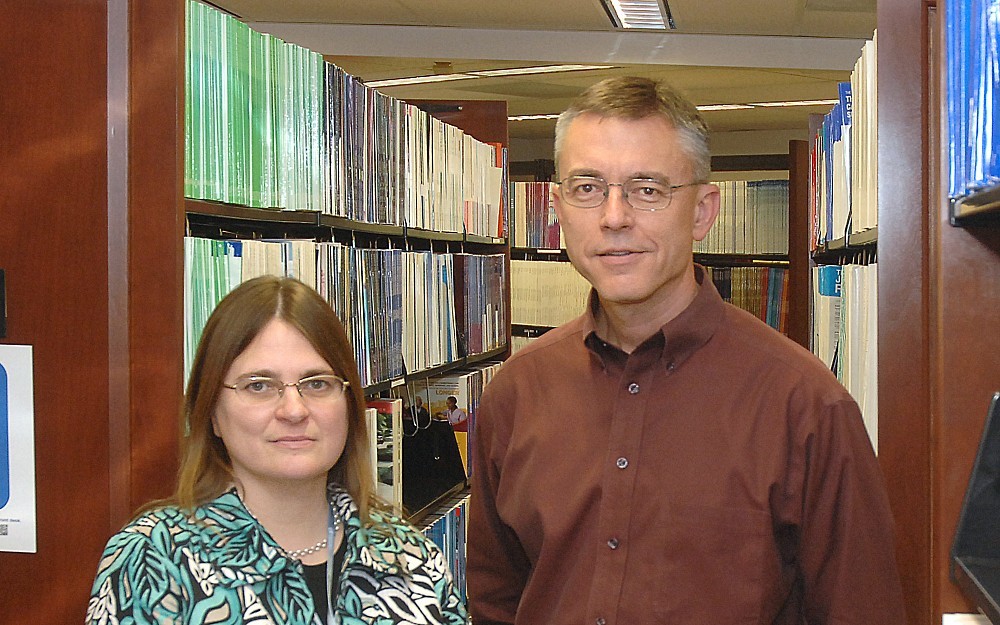
Palliative Care Fellowship Programs Train Physicians to Provide Specialized Care
As palliative care programs in the United States continue to grow, providing options and support for patients and families dealing with serious, potentially life-limiting illness, the need for trained professionals to lead these efforts becomes apparent.
Faculty at the University of Cincinnati and Cincinnati Childrens Hospital Medical Center are addressing this need with the creation of two new Hospice and Palliative Medicine Fellowship Programs, aimed at training physicians to provide specialty-level palliative care to patients in a variety of settings.
Doug Smucker, MD, adjunct professor in the department of family and community medicine, is program director for a new fellowship program sponsored by Christ Hospital, and Norbert Weidner, MD, associate professor of pediatrics, directs a new fellowship program at Cincinnati Childrens. These two programs, both accredited earlier this year by the American Council for Graduate Medical Education, are unique in the region.
"In palliative care, emphasis is placed on pain and symptom management as well as communication and coordination of care, both in the acute care hospital as well as care settings in the community, says Smucker. "Many people think that palliative care is only applicable in the last few days or weeks of life, but it is an important component of care at any point in the course of a serious illness, to improve symptom control, quality of life and care planning for patients and their families.
Programs Provide Multidisciplinary, Interdisciplinary Training
The fellowship program based at Christ Hospital is a one-year program that takes place after completion of residency. Smucker says the fellowship is open to physicians trained in a number of specialtiesfrom primary care to psychiatry to emergency medicine.
"Suzanne Gaudreault, MD, who is a family physician, became our first fellow in October, Smucker says. "We will expand to have two fellows in the program in 2013.
Fellows, like Gaudreault, receive the full spectrum of training in this program, both with the inpatient palliative care consult team at Christ Hospital and with teams at partnering community organizations, like Hospice of Cincinnati, Vitas Hospice and Maple Knoll Retirement Village.
"Fellows receive half of their training in the hospital and half of it at care facilities in the community, says Smucker. "Although our program is focused on care of adult patients, fellows also complete rotations at Cincinnati Childrens and the StarShine Hospice team that cares for children with life-limiting illnesses.
Weidner, medical director of the pediatric palliative care program at Cincinnati Childrens and of the StarShine pediatric hospice, says the simultaneous creation of these fellowship programs allows fellows to have a multidisciplinary education. Cincinnati Childrens has accepted its first fellow, Rachel Thienprayoon MD, who will begin in July of 2013.
"As in the adult program, the pediatric palliative care program at Cincinnati Childrens provides support to children and their families who are experiencing serious life-limiting illness. The spectrum of illnesses range from complex illness such as ventilator dependent survivors of the newborn intensive care to chronic and often fatal disorders such as muscular dystrophy and cancer, Weidner says.
"Our pediatric fellow will also rotate and work with adult palliative care facilities at Christ Hospital and in the community. The partnership between the fellowship programs provides training that a physician needs to support patients of all ages.
Smucker adds that all palliative care specialty training is focused on an interdisciplinary approach to patient care, and fellows work in a variety of care settings with interdisciplinary teams made up of advanced practice nurses, home health aides, chaplains, pharmacists and social workers.
"Interdisciplinary teams are the cornerstone of providing specialized palliative care, both in the hospital and in the community, he says.
Specialized Training Leads to Specialized Care
"There are a number of reasons a palliative care fellowship program is so important, Smucker adds. "For patients coping with a life-limiting illness and attempting to make decisions as the condition worsens, there is a need for a physician who specializes in this level of detailed care and communication for both the patients and families involved.
"The evidence base is growing rapidly for the value of palliative care programs. We want to further expand the availability of high-quality, evidenced based palliative care in our region through these new training programs.
Tags
Related Stories
Is ketamine the answer to treatment-resistant depression?
May 16, 2024
The University of Cincinnati's Stephen Rush joined WVXU's Cincinnati Edition to discuss the use of ketamine and esketamine to treat treatment-resistant depression.
UC study: Severe ischemic strokes rare in total patient...
May 15, 2024
The University of Cincinnati’s Yasmin Aziz will present research at the European Stroke Organisation Conference that found severe ischemic strokes with the most severe damage are rare in the total stroke patient population.
Increasing syphilis cases highlight treatment barriers across...
May 14, 2024
The University of Cincinnati's Carl Fichtenbaum spoke with the Cincinnati Enquirer about a recent report that found Hamilton County syphilis cases reached a six-year high in 2023.
